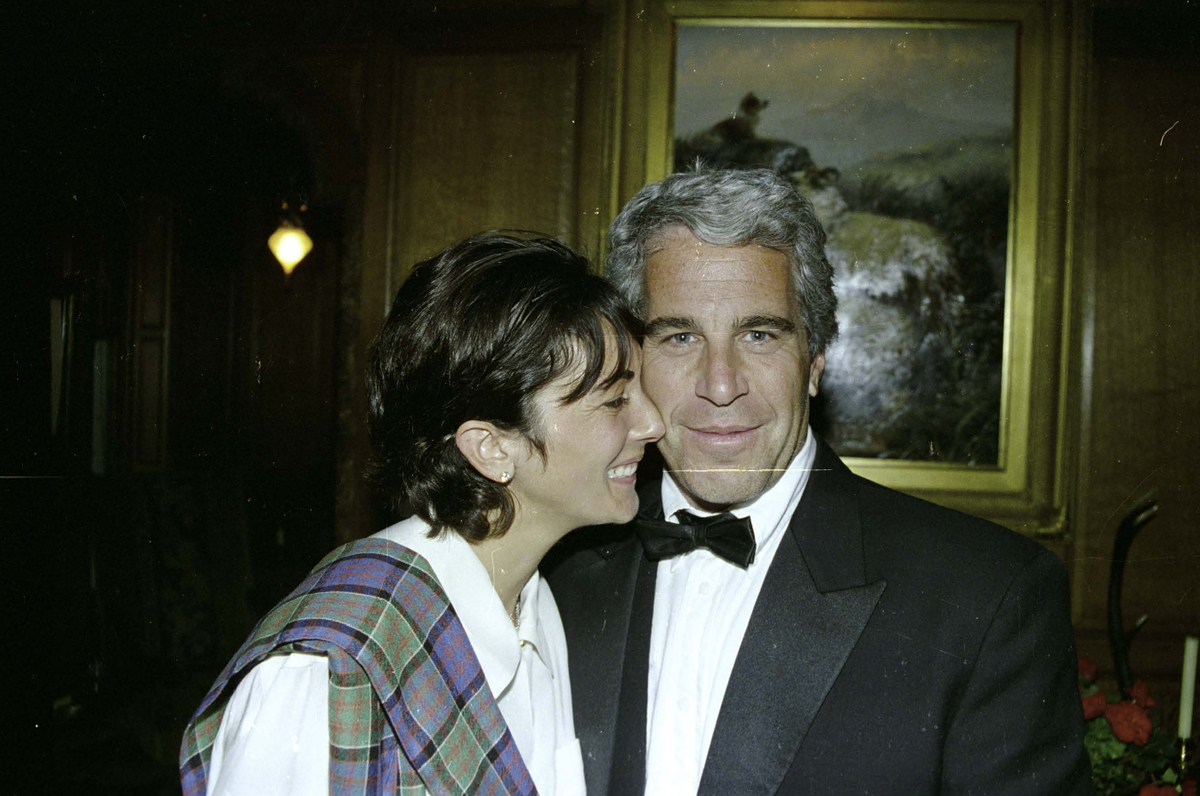Jeffrey Epstein: How did disgraced financier die?

British socialite Ghislaine Maxwell may have been convicted in December of running a “pyramid scheme of abuse” and trafficking girls and young women for sex but the Jeffrey Epstein saga continues to have an afterlife.
In a recent ITV documentary, former associates of Maxwell suggested she may have had an intimate relationship with Prince Andrew, in addition to her long relationship with Epstein himself.
“From the way she was allowed to enter and exit the palace at will, we realised... suspected, that she may have had an intimate relationship with Prince Andrew,” former Buckingham Palace royal protection officer Paul Page said in Ghislaine, Prince Andrew and The Paedophile.
Follow Ghislaine Maxwell’s sentencing live here
Since the verdict, there have also been developments in a parallel case, a civil lawsuit from Virginia Roberts Giuffre, who claims Prince Andrew had sex with her knowing she was underaged after she was trafficked by Epstein and Maxwell.
In January, a federal judge allowed the case, where Prince Andrew has denied wrongdoing, to go to trail but the accused eventually elected to settle with Ms Guiffre out of court, despite vehemently protesting his innocence.
Looming behind all this, however, is a shocking even from 2019 that has left few who follow the case closely with closure.
In 2019, Epstein died by suicide in prison before he could be put on trial for trafficking charges of his own.
As the story continues to unfold, here’s what you need to know about the circumstances of his death.
How did Jeffrey Epstein die?
Epstein died on 10 August inside the Metropolitan Correctional Center in New York, where he was confined ahead of a pending trial for allegedly recruiting dozens of teen girls to engage in sexual acts with him and his friends. He was facing up to 45 years in prison if he was convicted.
Epstein was found with a noose made out of a bedsheet and the authorities ruled the death a suicide.
Why is there scepticism about Epstein’s death?
Since the 66-year-old’s death, speculation has run rampant that Epstein did not kill himself, though authorities ranging from the medical examiner to former US attorney general Bill Barr have publicly declared that Epstein did take his own life.
But the rumours that the disgraced billionaire had in fact been assassinated began almost immediately.
One of his lawyers, Reid Weingarten, said he had met with Epstein shortly before he died and remarked: “We did not see a despairing, despondent, suicidal person”. The attorney argued instead that Epstein’s body, found with broken bones in his neck, which can also occur during strangulation, showed evidence “far more consistent with assault”.
Then-president Donald Trump piled on as well, retweeting a conspiracy theory tying the death to Bill Clinton, who had flown on Epstein’s private jet dubbed the “Lolita Express”, as had numerous other figures in politics and entertainment – including Mr Trump himself.
The death also set off fevered speculation online, where the story overlapped with the themes of the increasingly influential QAnon conspiracy movement, which believes a cabal of paedophilic Democratic and media elites are conspiring to harm children.
Mr Barr, however, said he personally reviewed security footage of Epstein’s cell and said no one else was present during the death.
"I can understand people who immediately, whose minds went to sort of the worst-case scenario because it was a perfect storm of screw-ups," he told the Associated Press in 2019.

There were other factors that raised eyebrows as well, including Epstein’s repeated comments to prison psychologists that he was mentally sound and not contemplating suicide.
“Why would you ever think I would be suicidal? I am not suicidal and I would never be,” Epstein told one prison official, adding that as a Jew, it was against his religion.
“I have no interest in killing myself,” Epstein declared on another occasion, saying he was a “coward” who “would not do that to myself”, according to Bureau of Prisons documents reviewed by The New York Times.
What’s more, even after an apparent suicide attempt in July and growing concern from prison psychologists he would try again, the two guards set to monitor him have admitted to lapses, including lying on documents about whether they had checked his cell the night of his death.
What happens now?
More than two years later, the Bureau of Prisons and Department of Justice are still investigating the death, fueling further criticisms that something seems to be amiss.
"Jeffrey Epstein should still be sitting behind bars today – but the system failed on every level, and he escaped justice," US senator Ben Sasse, among those pushing for more information on what happened, said in August. "We owe it to the young women he victimised to continue our push for answers, and ensure that this never happens again."
The suicide has also opened up federal authorities to criticisms as to how they let an inmate in their care take his own life, if that is what really happened.
Documents reported by CNN and The NYT reveal a number of errors leading up to the death. Officials initially segregated Epstein with the general population and failed to note his previous sex offender convictions.
They made errors on record-keeping that indicated he was black, even though he was white.
On the night of his death, when he was left alone even though he had been ordered to have a cellmate, he claimed he was calling his mother, who is dead, and was instead calling his girlfriend.
Psychologists were also clearly aware the man was disturbed before his death, including temporarily being placed on suicide watch.
This May, a judge approved a deal that would see the two guards who failed to monitor Epstein’s cell avoid jail time and instead get community service.


